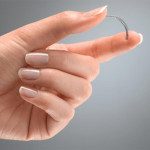 An analyst who examined the FDA’s adverse events website for cases involving the controversial Essure permanent contraception device made by Bayer (ETR:BAYN) said the federal safety watchdog likely underestimated the number of fetal deaths linked to the device.
An analyst who examined the FDA’s adverse events website for cases involving the controversial Essure permanent contraception device made by Bayer (ETR:BAYN) said the federal safety watchdog likely underestimated the number of fetal deaths linked to the device.
That’s because the agency, which estimated 5 U.S. fetal deaths among the roughly 750,000 Essure devices implanted here and abroad since its November 2002 approval, searches report headings but not the text, Device Events founder & CEO Madris Tomes told Reuters. Tomes, whose company makes a web-based tool designed to search the FDA’s post-market surveillance data, estimated that 303 fetal deaths occurred after women with Essure implant became pregnant.
“When adverse events go to the FDA, ‘death,’ ‘injury’ or ‘malfunction’ are the boxes you check,” said Tomes, a consultant who also worked as a data analyst for the FDA, according to her LinkedIn profile. “My system searches the narrative,” she said, using keywords such as ‘fetal death,’ ‘stillbirth,’ ‘stillborn’ and ‘miscarriage.’ The FDA tracks adverse event reports from hospitals and medical device makers using its Manufacturer & User Facility Device Experience database.
“Irrespective of the type of birth control a woman uses, when pregnancies do occur, there can be complications,” a Bayer spokeswoman told Reuters. “It would be irresponsible to suggest that Essure causes fetal deaths when, after an unsuccessful Essure procedure, an undesired pregnancy cannot be carried to term.”
Essure is a small metal coil that’s placed in the fallopian tubes via catheter. The FDA said last year that in the 13 years since Essure’s approval, the agency had received 5,093 complaints, including for pain or menstrual irregularities after using the device, and complaints of the device breaking. In addition to the 5 fetal deaths, there were 4 reports of adult deaths for reasons such as infection and uterine perforation, the FDA said.
In a report issued before a September meeting of the FDA’s Obstetrics & Gynecology Devices advisory panel, the agency said it logged a nearly 1,400% spike in complaints filed over Essure in the last 3 years. During the hearing, Bayer’s director of global pharmacovigilance risk management, Dr. Andrea Machlitt, told the panel that the company received 17,000 adverse event reports, 15,000 from the U.S. The panel voted to recommend limited use of Essure until more is known about its safety.
In October 2015 a study found that women implanted with Essure were more than 10 times more likely to require post-procedure surgery than those who underwent laparoscopic sterilization.
The FDA last November pledged to issue its review of the data on Essure by the end of this month.
Rep. Mike Fitzpatrick (R-Pa.), who authored a bill that would ban U.S. sales of Essure last year, yesterday asked the FDA to review the Tomes report. FDA spokeswoman Deborah Kotz declined to comment on Tomes’ analysis, but said the FDA would review it and respond to Fitzpatrick, Reuters reported.

